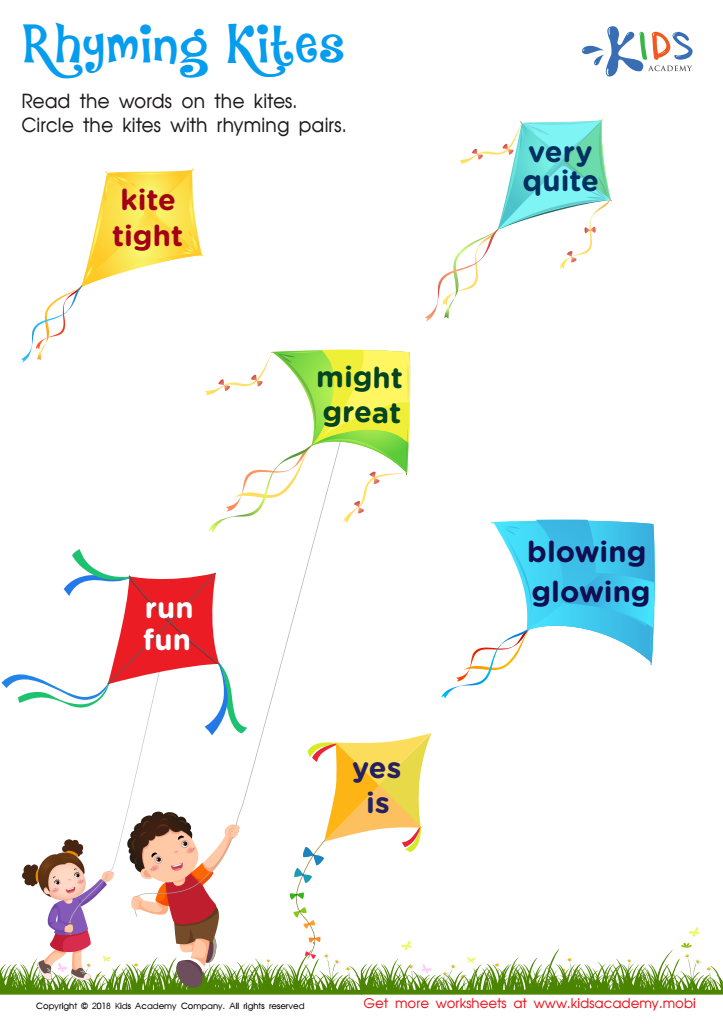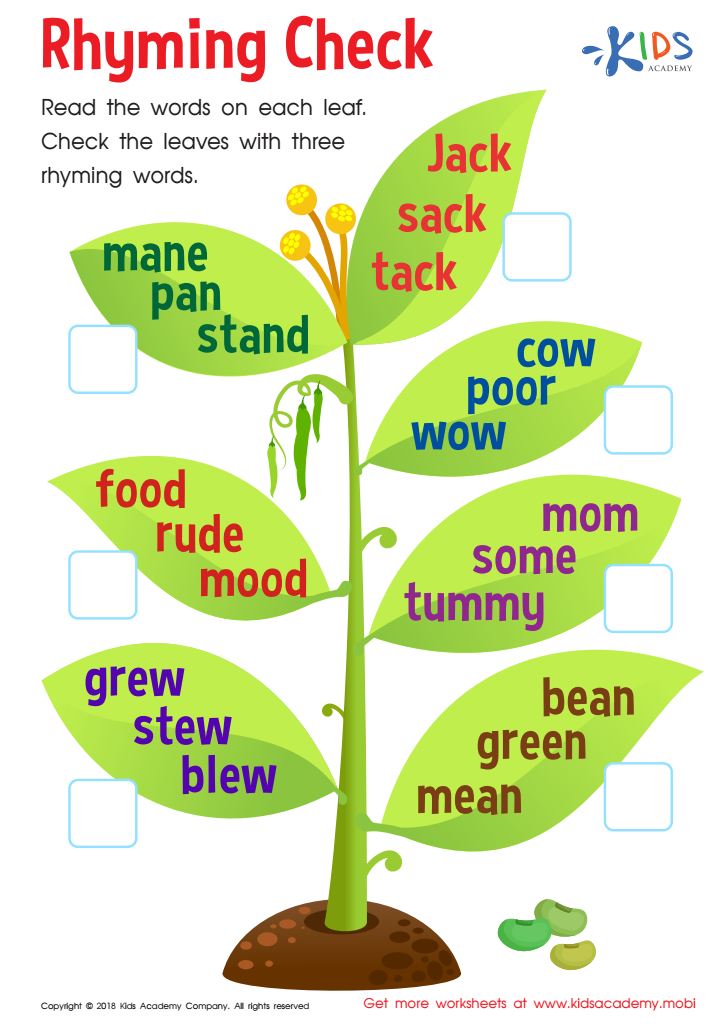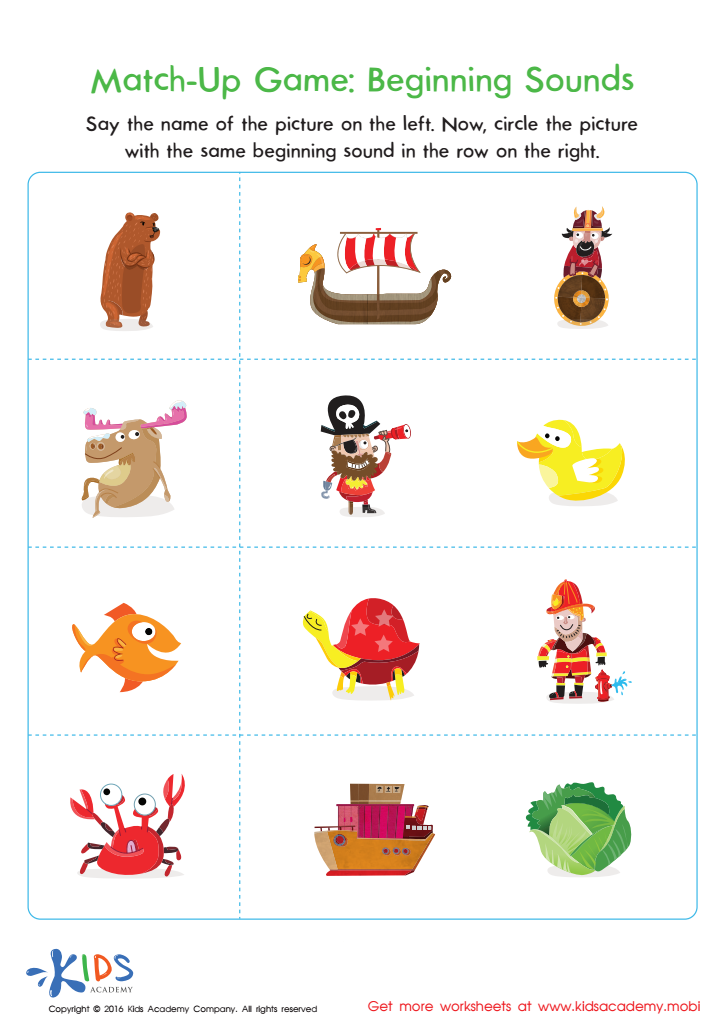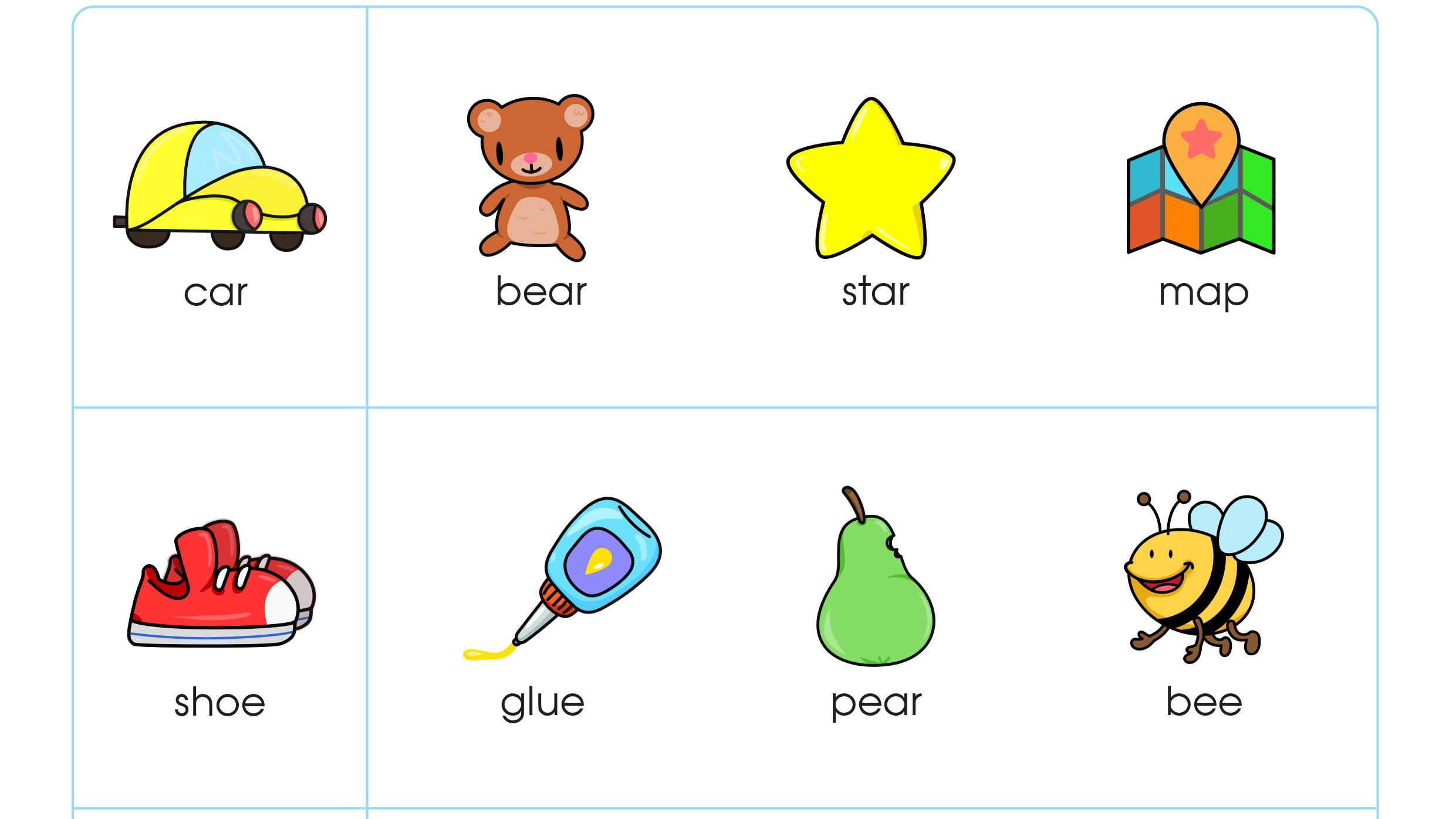Vocabulary expansion Normal Rhyming Words Worksheets for Ages 5-9
3 filtered results
-
From - To
Enhance your child’s language skills with our Vocabulary Expansion Normal Rhyming Words Worksheets, designed specifically for ages 5-9. These engaging activities encourage kids to explore the world of rhymes, fostering their vocabulary and phonemic awareness. Each worksheet offers playful exercises that help children identify, match, and create rhyming words, making learning fun and interactive. Perfect for at-home practice or classroom use, these worksheets not only support literacy development but also promote creative thinking and cognitive skills. Help your young learners build a strong foundation in language with these essential resources that combine education with enjoyment!


Rhyming Kites Worksheet


Rhyming Check Worksheet


Match–Up Game: Beginning Sounds Worksheet
Vocabulary expansion, particularly through the use of normal rhyming words, is essential for children aged 5 to 9 as it plays a significant role in language development and literacy skills. During these formative years, children are acquiring foundational language skills that impact their ability to communicate effectively. Rhyming words enhance phonemic awareness, allowing children to hear, identify, and manipulate sounds in spoken language. This skill is crucial for developing reading skills, as it contributes to recognizing patterns and decoding words.
Moreover, engaging with rhyming words fosters creativity and helps children develop an appreciation for language. Rhymes can be fun and memorable, making it easier for young learners to grasp new vocabulary. This expanded vocabulary builds their confidence and encourages exploration of expressive language, which aids critical thinking and storytelling abilities.
Teachers and parents can utilize rhymes in songs, poems, and games, enhancing learning experiences. This playful exposure creates a love for words, making language learning enjoyable. As children become more proficient in vocabulary, they are better prepared for academic success, as strong vocabulary correlates with reading comprehension and overall literacy. By prioritizing vocabulary expansion through rhyming, adults can significantly contribute to a child's educational journey and lifelong love for language.
 Assign to My Students
Assign to My Students




.jpg)










